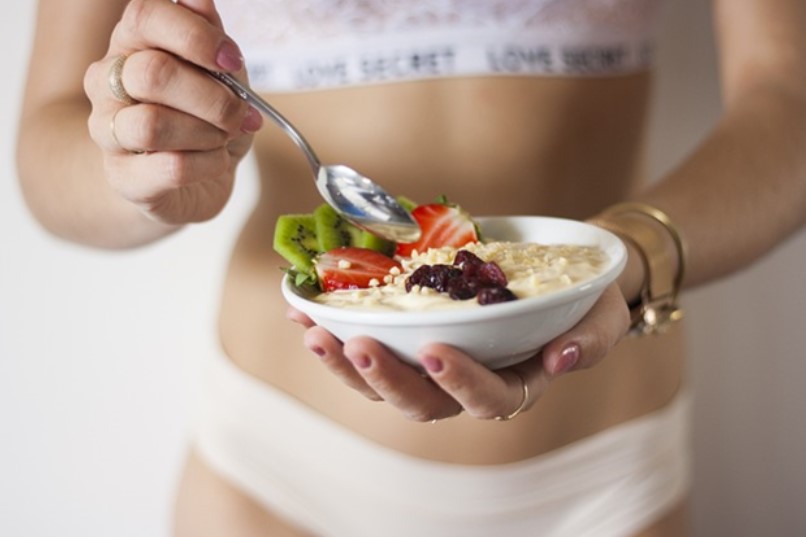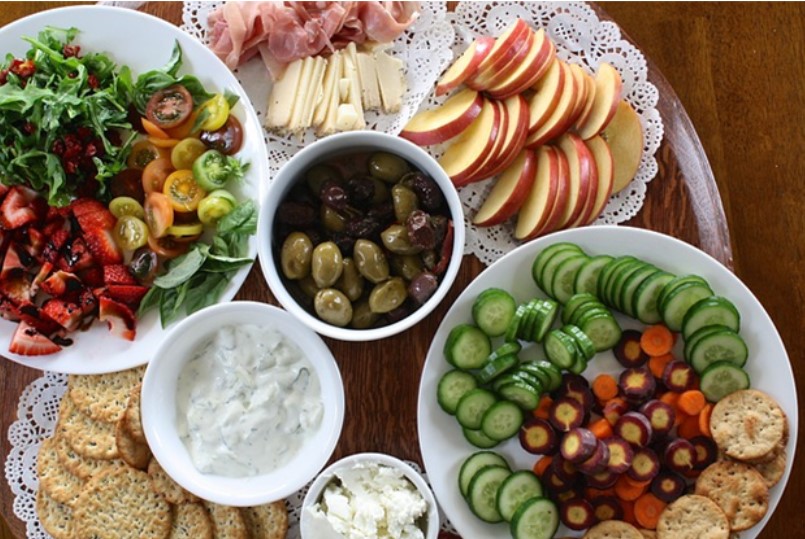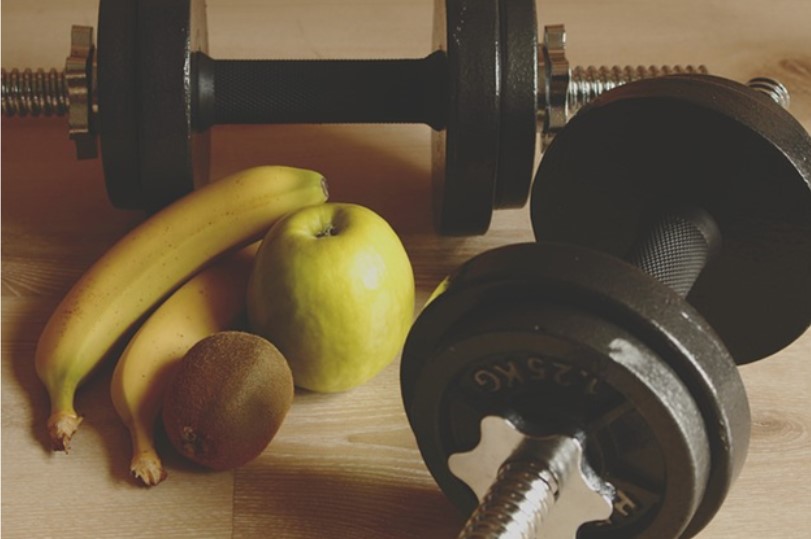What is Clean Eating?
Clean eating is a lifestyle approach that prioritizes the consumption of whole, unprocessed foods. By avoiding highly processed foods, added sugars, and artificial ingredients, individuals who practice clean eating can improve their nutrient intake, digestion, energy levels, and overall wellbeing. This dietary approach emphasizes consuming fruits, vegetables, lean proteins, and healthy fats rich in nutrients such as vitamins, minerals, and fiber to support optimal health and fitness. Additionally, sticking to a clean eating diet can reduce the risk of chronic diseases such as obesity, type 2 diabetes, and heart disease.
Why is Clean Eating Important?
Clean eating is essential because it focuses on consuming whole, nutrient-dense foods that are free from additives and preservatives. By avoiding processed foods, you can reduce the intake of unhealthy ingredients such as refined sugar, unhealthy fats, and excess sodium. This type of diet can lead to improved health outcomes, including weight loss, better digestion, increased energy levels, and a reduced risk of chronic diseases such as diabetes and heart disease. Additionally, by choosing whole foods and supporting local farmers, clean eating promotes sustainable food choices that benefit both our health and the environment.
Benefits of Clean Eating
- Improved Nutrient Intake
By focusing on whole foods, clean eating allows you to increase your intake of essential vitamins and minerals. Whole foods are nutrient-dense and offer a variety of health benefits. Clean eating emphasizes minimally processed foods that are free from additives and preservatives, making them a healthier choice. These types of foods are also typically lower in unhealthy fats, added sugars, and artificial ingredients, making them beneficial for overall health. By making small changes towards clean eating, you can improve your nutrient intake and overall well-being.
- Better Digestion
Clean eating can have a significant impact on your digestive system, promoting better gut health and reducing the risk of gastrointestinal diseases. By incorporating whole foods such as fruits, vegetables, lean proteins, and whole grains into your diet, you can increase your fiber intake and improve digestion. Avoiding processed foods that are difficult to digest can also help reduce bloating and discomfort. Overall, clean eating can be an effective way to improve digestive health and maintain a healthy gut microbiome.
- Increased Energy Levels
Clean eating can be beneficial in terms of increasing energy levels. By consuming whole, minimally processed foods, you can provide your body with essential nutrients that help sustain energy throughout the day. On the other hand, foods high in sugar and artificial ingredients can cause a spike in blood sugar levels followed by a crash that leads to fatigue. Clean eating can also improve mental clarity and focus, allowing for more productive days. With small changes towards clean eating, you can experience increased energy levels and an overall sense of well-being.
- Weight Loss
Clean eating can help with weight loss by reducing calorie intake and increasing nutrient-dense foods. Whole foods are typically lower in calories than processed foods, making it easier to maintain a calorie deficit. Incorporating lean protein sources, such as chicken or fish, can also support weight loss efforts. Additionally, clean eating can lead to increased energy levels and improved athletic performance.
- Reduced Risk of Chronic Diseases
Eating a diet rich in whole, nutrient-dense foods can significantly reduce the risk of chronic diseases such as heart disease, diabetes, and cancer. By incorporating foods that are minimally processed and high in vitamins, minerals, and antioxidants, you can boost your overall health and wellbeing. Additionally, clean eating promotes a diet that is low in added sugars and unhealthy fats, further reducing the risk of chronic disease and improving long-term health outcomes.

How to Get Started with Clean Eating?
Clean eating is a way of eating that focuses on whole, unprocessed foods. It’s a great way to improve your health and well-being, and it can be a lot easier than you think to get started.
Here are a few tips to help you get started with clean eating:
- Start by learning about clean eating. There are a lot of resources available online and in libraries that can teach you more about clean eating. Once you have a basic understanding of the principles of clean eating, you can start making changes to your diet.
- Make small changes gradually. Don’t try to overhaul your entire diet overnight. Instead, start by making small changes that you can stick with. For example, you could start by replacing one processed meal with a home-cooked meal each week.
- Focus on whole foods. The key to clean eating is to focus on whole, unprocessed foods. These foods are packed with nutrients and fiber, and they’ll help you feel full and satisfied. Some examples of whole foods include fruits, vegetables, whole grains, lean proteins, and healthy fats.
- Read food labels carefully. When you’re shopping for food, be sure to read the food labels carefully. Look for foods that are low in processed ingredients, added sugars, and unhealthy fats.
- Cook more meals at home. Cooking at home gives you more control over the ingredients in your food. When you cook at home, you can use fresh, whole foods and avoid processed ingredients.
- Don’t be afraid to experiment. There are many different ways to eat clean. Experiment with different recipes and find what works best for you.
Clean eating is a great way to improve your health and well-being. By following these tips, you can get started with clean eating and make it a part of your lifestyle.
Here are some additional tips to help you get started with clean eating:
- Set realistic goals. Don’t try to change your entire diet overnight. Instead, set small, achievable goals for yourself. For example, you could start by eating one more serving of fruits or vegetables each day.
- Find a support system. Having friends or family members who are also trying to eat clean can be helpful. You can support each other and stay motivated.
- Don’t give up. There will be times when you slip up and eat something unhealthy. Don’t beat yourself up about it. Just pick yourself up and start again.
Clean eating is a journey, not a destination. It takes time and effort to make lasting changes to your diet. But if you’re patient and persistent, you can achieve your health goals.

Tips for Maintaining a Clean Eating Lifestyle
- Plan Your Meals Ahead of Time
Planning your meals ahead of time is a crucial step in maintaining a clean eating lifestyle. When you plan out your meals, you are less likely to reach for unhealthy options when hunger strikes. Creating a grocery list can also help you avoid impulse buying and stay within your budget. Additionally, prepping your meals in advance, like chopping vegetables or cooking proteins, can save you time during the week and reduce food waste. By taking the time to plan ahead, you can set yourself up for success on your clean eating journey.
- Cook at Home More Often
Cooking at home is an essential aspect of a clean eating lifestyle. By preparing meals at home, you have complete control over the ingredients and can ensure that you are consuming whole foods. Not only does cooking at home allow you to experiment with different cuisines and flavors, but it also saves money and time throughout the week. Moreover, using fresh ingredients can improve the nutritional value of your meals, contributing to a healthy lifestyle. So why not involve your family and friends in this endeavor and make eating a fun and social activity?
- Experiment with New Recipes and Flavors
Trying new recipes and flavors is an exciting way to keep your clean eating lifestyle fresh and enjoyable. By incorporating new fruits, veggies, and whole grains into your diet, you can expand your culinary horizons and discover foods that you love. Invest in a good cookbook or find inspiration online to guide you in discovering new recipes. Don’t be afraid to experiment with different cooking techniques or flavor combinations to make mealtime exciting. Remember that clean eating is a way of life, not a diet, so it’s essential to find foods that you enjoy and can sustain long-term.
Let’s Sum Up
In summary, clean eating is a lifestyle that focuses on consuming whole and minimally processed foods. It has numerous benefits, including improved nutrient intake, better digestion, increased energy levels, weight loss, and reduced risk of chronic diseases.
Getting started with clean eating is easy; you only need to eat more whole foods, limit processed foods, read food labels, choose healthy fats, reduce added sugars and drink plenty of water. Once you’ve embraced clean eating, it’s essential to maintain this lifestyle by planning your meals ahead of time, cooking at home more often and experimenting with new recipes and flavors.



